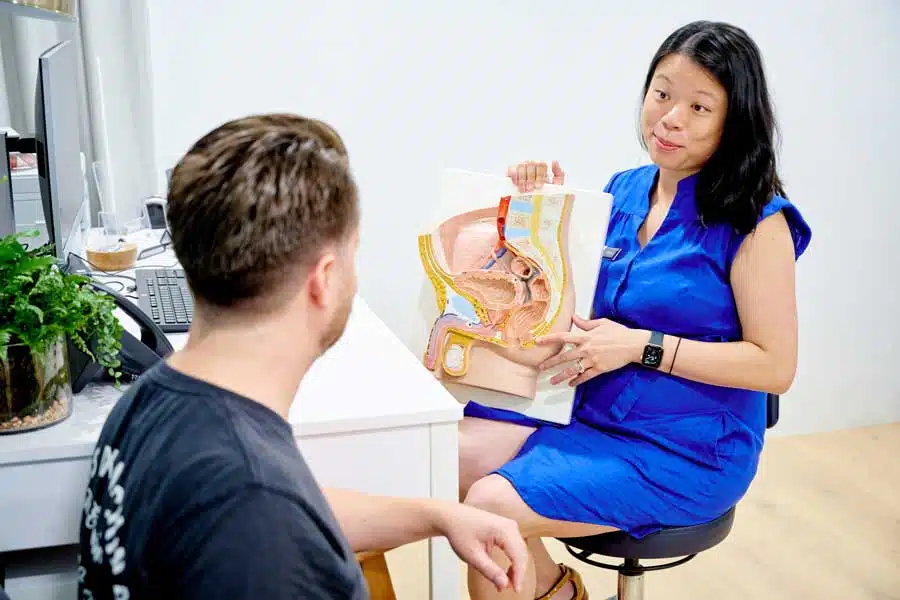Incontinence, defined as ‘involuntary loss of urine or faeces’, is an unwelcome and often unexpected symptom for men as it’s usually associated with women and child birth.
Incontinence certainly affects men it and can include symptoms of urinary frequency (weeing to often) and urinary urgency (panicking to make the toilet). Evidence indicates that men’s incontinence can be overcome equally as effectively as women’s. It is essential men know how to perform pelvic floor muscle contractions correctly and understand how frequently and intensely they need to undertake them to achieve the best results. Sydney Pelvic Clinic physiotherapists are specially trained in this area, providing you with feedback and an individual plan to optimise your bladder and bowel habits.
Prostate Surgery
Prostate cancer is the most commonly diagnosed cancer in men and it’s found to affect 1 in 7 men by the time they reach 75 (Prostrate Foundation, 2016). Many men diagnosed with prostate cancer will undergo surgery to remove the prostate which can have a dramatic effect on their bladder and sexual function. Strengthening your pelvic floor muscles (PFM) before prostrate surgery is essential to reduce the risk of prolonged incontinence and Erectile Dysfunction (ED). Evidence shows that men who start PFM training 4-6 weeks before surgery get the best results (Centemero et al 2010). However, it’s never too late to start, even if you have already had surgery.
Post Micturation Dribble (PMD)
Post Micturition Dribble (PMD) is the involuntary loss of urine after a person has finished going to the toilet. Unlike other bladder conditions, PMD is far more common in men than women. PMD is irritating and can be embarrassing, as it is often associated with men wetting their pants and clothes. At Sydney Pelvic Clinic your physiotherapist will identify the reason why you have PMD and provide an individual management plan to overcome it.
Nocturnal Enuresis
Nocturnal Enuresis is bed wetting, and affects up to 1 in 100 people. Nocturnal Enuresis can be either primary (starting in childhood) or it can occur in adulthood and may have a significant impact on a person’s quality of life. Our physiotherapists will ensure you have an effective action plan in place to overcome this condition. Often there are simple things that can make a big difference to reduce Nocturnal Enuresis improve the quality of life of patients suffering with it.
